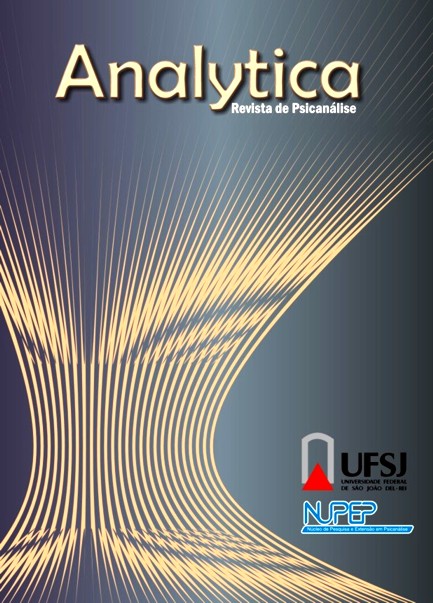The irrepresentable, the repetition and the death instinct: psychoanalysis and neurologic illness
Keywords:
Traumatic neurosis. Narcissistic identity disorder. Neurologic illness.Abstract
Clinical practice involving the treatment of neurological patients with cognitive impairments has usually had neurology and neuropsychology as its main axes, neglecting psychotherapeutic approaches and prioritizing the rehabilitation of cognitive functions. This essay aims at exploring what may be learned about the psychic organization of neurological patients from the perspective of psychoanalytical treatment, as opposed to evaluating the validity of this method. We introduce the argument that the psychopathological scene developed after the experience and perception of cognitive impairment is placed at the intersection of narcissistic identity pathologies and classic traumatic neuroses, since the traumatic blow established by the disease destabilizes the sense of identity and the continuity of the subjective existence, thus dissolving the cohesion of the ego and both intensifying the action of and amplifying the effects of the death instinct. Consequently, we assume that the concept of the death instinct, far from being a (self) destructive principle, should be understood as having a fulfilling role in psychic survival in the face of a traumatic flood. Finally, we approach a variety of technical considerations and offer a few observations on the aspects of countertransference.


